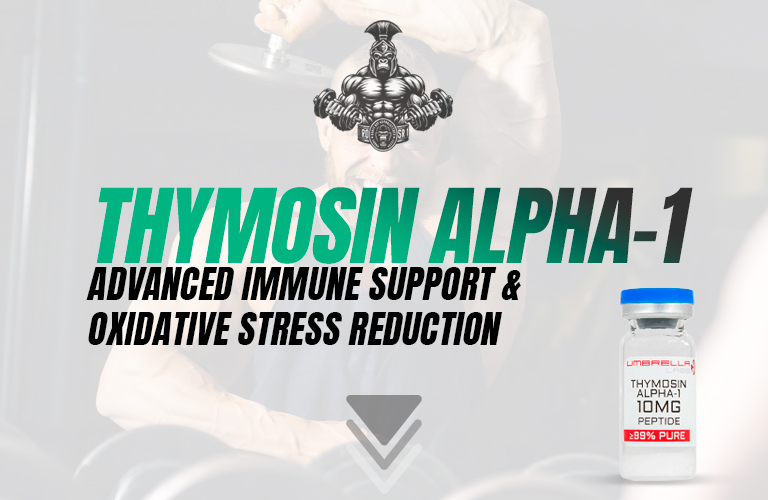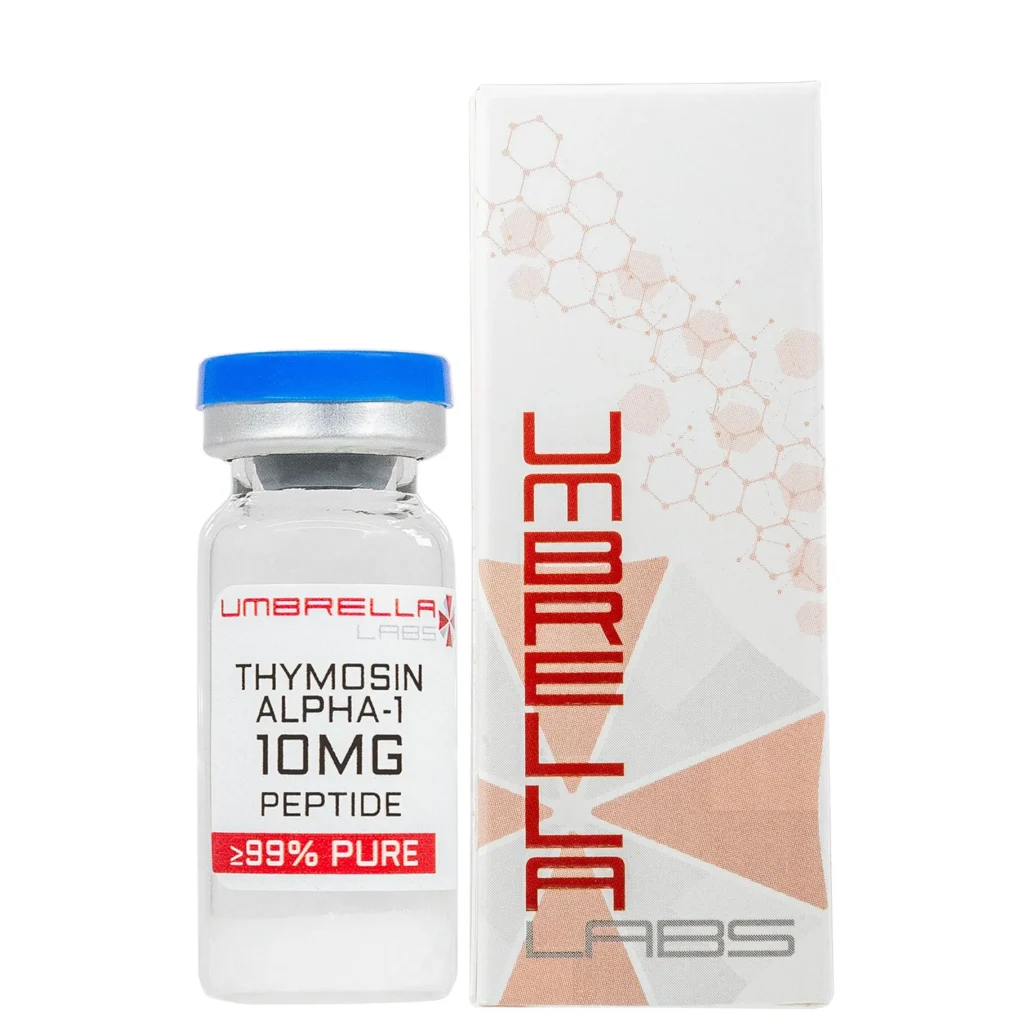
Thymosin Alpha-1 (TA1) is a biologically active peptide derived from Thymosin Fraction 5, which is produced by the thymus gland. It plays a crucial role in the regulation of the immune system, enhancing the body’s ability to respond to bacterial, viral, fungal, and cancerous threats. Its immune-modulating properties have led to its therapeutic use in a variety of clinical settings.
Mechanism of Action
TA1 exerts its effects by augmenting the maturation, differentiation, and migration of T cells, a type of white blood cell essential for the body’s immune response. It also influences the activity of natural killer (NK) cells, dendritic cells, and cytokine production, thereby enhancing the body’s innate and adaptive immune responses. TA1 works by binding to toll-like receptors on immune cells, activating nuclear factor-kB (NFkB) signaling pathways, which are crucial for the transcription of genes involved in immune activation.
Benefits and Uses
Enhanced Immune Response: TA1 effectively strengthens the immune response. It is valuable in treating chronic viral and bacterial infections, such as hepatitis B and C and HIV.
Cancer Adjunct Therapy: It has been used as an adjunct treatment in cancer, improving the efficacy of certain chemotherapy drugs and reducing side effects.
Autoimmune Disease Management: TA1 can modulate the immune system in autoimmune diseases, helping to reduce disease severity.
Antioxidant Effects: It exhibits antioxidant properties, contributing to cellular protection and health.
General Immune Support: TA1 bolsters the immune system in individuals with weakened immunity, including elderly populations.

Dosage and Cycle Guidelines
The dosage of Thymosin Alpha-1 typically ranges from 1.5 mg to 3 mg, administered subcutaneously twice a week. The cycle duration may vary based on the medical condition being treated, with courses commonly lasting from 6 to 12 weeks. Dosage and cycle length adjustments should be based on individual responses.
Potential Side Effects
Thymosin Alpha-1 is generally well-tolerated, with minimal side effects reported. However, some individuals may experience:
Injection Site Reactions: Including redness, discomfort, or irritation.
Fatigue: Some users report feeling unusually tired during treatment.
Muscle Aches: Mild and transient muscle aches have been reported.
Possible Flu-like Symptoms: Include fever, chills, or a general feeling of being unwell, typically transient and indicative of the immune system’s activation.
Given its immunomodulatory effects, TA1’s role in treating and managing various conditions where immune enhancement or modulation is beneficial has been increasingly recognized.
“Bionic SARMs”: Your Ultimate Guide.
Download Now!
This will close in 120 seconds
Underground Oral Steroid Handbook
Download Now!
This will close in 120 seconds
Underground Injectable Steroids Handbook
Download Now!
This will close in 120 seconds
Underground Peptides Handbook
Download Now!
This will close in 120 seconds
Secret to Mail Order Steroids 2024 Handbook
Download Now!
This will close in 120 seconds
Underground Steroid Cycles Handbook
Download Now!
This will close in 120 seconds
Beligas Pharmaceuticals 2024 Underground Guide
Download Now!
This will close in 0 seconds
The Nootropics Underground Handbook
Download Now!
This will close in 120 seconds
EUROPHARMA 2024 Steroid Handbook
Download Now!
This will close in 120 seconds
Para Pharma 2024 Steroid Guide
Download Now!
This will close in 120 seconds
Fitness and Performance Blueprint
Download Now!
This will close in 120 seconds
Geneza Pharmaceuticals Underground Steroid Catalog
Download Now!
This will close in 120 seconds
Lean Body Manual
Download Now!
This will close in 120 seconds
SARMs.co Research Guide
Download Now!
This will close in 120 seconds
Australian Labs Underground Guide 2025
Download Now!
This will close in 120 seconds
SOCIAL MUSCLE eBook
Download Now!
This will close in 120 seconds
SOCIAL MUSCLE FREE EBOOK DOWNLOAD
Secure your copy now — link will be delivered by email.
This will close in 120 seconds
The Wolverine Stack
Secure your copy now — link will be delivered by email.
This will close in 120 seconds
The Wolverine Stack FB
Secure your copy now — link will be delivered by email.
This will close in 120 seconds


